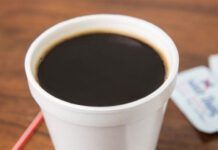With airlines ever under the gun to reduce carbon emissions, they’re sponsoring ever more ambitious demonstrations of sustainable aviation fuel. The latest comes from Virgin Atlantic and Rolls-Royce, who have announced a plan to fly a trans-Atlantic flight on 100 percent SAF in November 2023. Air bp and Virent, a biofuel subsidiary of Marathon Petroleum, are also partners in the demonstration.
Rolls-Royce said last month that it has successfully run a Trent 1000 engine on an SAF blend, clearing the way for the demonstration flight in a Boeing 787 for Nov. 28, 2023. Air bp and Virent will supply 60 tons of SAF to support the project.
SAF can be produced through seven major chemical pathways and for this demonstration, the fuel will be produced through hydroprocessed esters and fatty acids, known as HEFA. This method typically uses waste vegetable oil, fats and oil residues as feedstocks. The project will also employ the SAK pathway, which yields synthetic kerosene through the Fischer-Tropsch process, using a variety of feedstocks.
SAF, according to Virgin, typically reduces carbon life-cycle emissions by up to 70 percent because credit is given for the carbon already absorbed in the feedstocks. The airline industry is aiming for net-zero emissions in 2050. It has a long way to go. SAF currently represents less than 0.1 percent of Jet A volume. SAF is two to four times more expensive that petroleum-derived Jet A.


































We already know SAF works in engines.
What I want to know is where they are going to source ‘waste vegetable oil, fats and oil residues’ at real scale. We’re going to need a lot more fast-food outlets, preferably near airports and refineries?
I think the gentile term for this form of deceit is called “gaslighting”.
Saying a 787 is being carbon neutral is a quite a whopper!
SAF is another creation of the Unicorn loving Utopians. Carbon neutrality doesn’t exist in fuels.
It is time to come down to Earth and clear the CO2 from being the Global Warming villain.
Honest science tolerated this nonsense long enough. LOL.
Cargo with 2 humans on board or passenger rev flight? Certification issues?
I love it. The good is never perfect, but still it is good.
Two to four times more expensive? That doesn’t sound very sustainable in this industry.
The Fischer-Tropsch process for synthetic kerosene is 50% efficient. Well, that’s the process itself and does not take into account all the energy losses in each stage of the process.
You don’t break even on carbon much less on price. The final product is twice as expensive. I seriously do not think that doubling the price of fuel for zero effect on the environment is “sustainable” in any definition of the word.
Big deal! Once again nothing but a shell game that allows governments to sneak in additional taxes, and does nothing to “reduce” carbon discharges or “global warming”. As if that is a real problem anyway.
Currently, much of the push for SAF, like ethanol to SAF is a stampede that will likely end up running off a cliff. Many of the news articles don’t mention that here in the US, there is also a $1.75 subsidy for SAF if SAF can show a 50% reduction in carbon compared to current jet fuel. It takes energy to reform/create energy so other than using tallow and other low hanging options, even getting SAF volumes to 25% will be a huge lift with significant cost. Many of these SAF processes also make a non-aromatic fuel, which if using 100% non-aromatic SAF will shrink o-rings and why there typically is a limit of up to 50% SAF for blending.
If we first consider the efficiency for lowering carbon, maybe the airlines should consider biomass vaults as this study researched. Forest emits as much CO2 as does fossil fuels. Why not bury wood and take the carbon credit towards today’s jet fuel which takes far less energy (carbon) to produce than using biomass.
https://cbmjournal.biomedcentral.com/articles/10.1186/s13021-022-00202-0
Vile use of animals.
Don’t be so vulgar, referring to your passengers like that….
And they’re expecting to find enough passengers willing to pay first class prices for a coach seat, all in the name of “carbon neutrality”. I wanna smoke what theyre smoking.
We’re already carbon neutral, just on a much longer timeframe. Where’d the carbon in dino-juice come from if not for the atmoshere, a bunch of years ago.
Somebody left the gate open again.
It is good news, but, even before SAF is widely available, there are some problems it will run into.
Total in France produces most of the 2% SAF blend the government is making compulsory, but does so by importing palm oil from the Far East.
Palm oil is associated with forests being destroyed, and Total is already under pressure.
Using sunflower oil or colza oil are obvious alternatives, except people cry that good food is being snatched from the mouths of babies…
There are enough plants set up to recycle restaurant frying fats now, that organised crime has moved in to the game — heavies show up and say “give us your old oil or else” to restauranteurs…
All this while Jet A remains entirely un taxed and so very cheap, even compared to used cooking oil where sales taxes are imposed when it is bought.